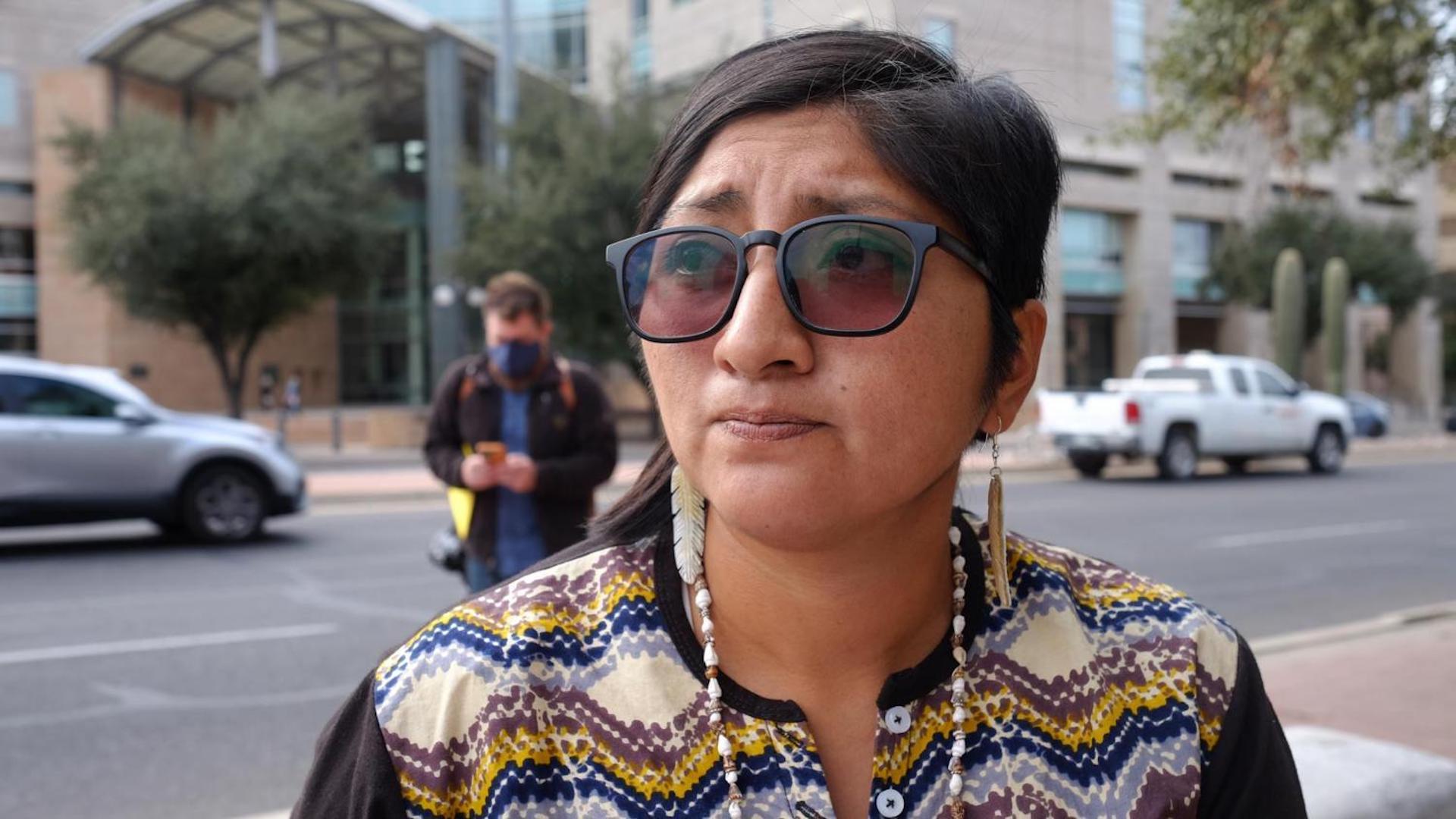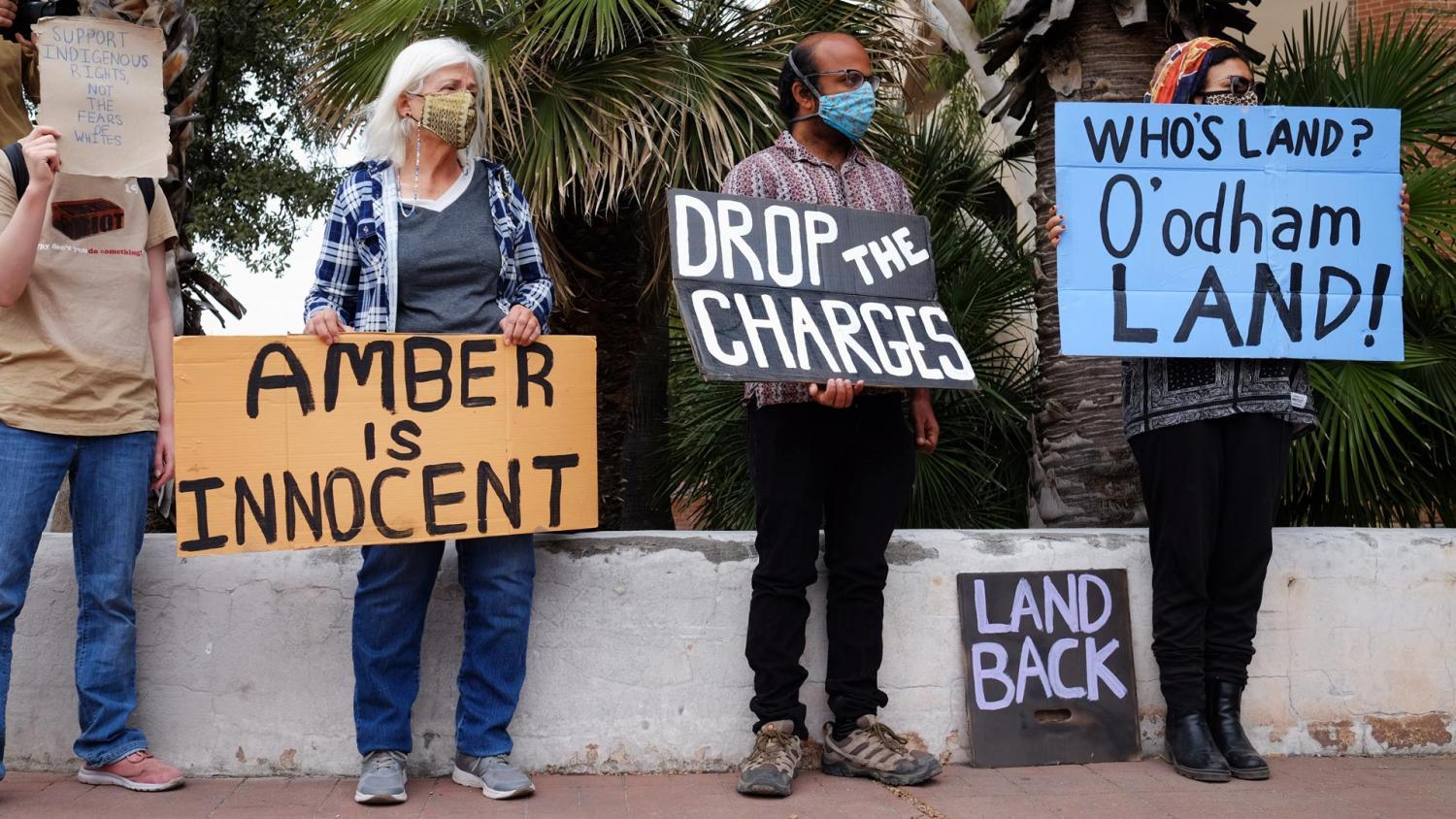 Amber Ortega looks on during a press conference in November 2021 about her case.
Amber Ortega looks on during a press conference in November 2021 about her case.
An Indigenous woman arrested for blocking border wall construction is back in court Wednesday, asking a federal judge to reconsider whether she can use a religious freedom law as her defense.
Amber Ortega was arrested in September 2020 along a border wall construction line in Organ Pipe Cactus National Monument. This is the second time she'll appear in court in Tucson facing federal misdemeanor charges of violating a closure order and interfering with government activity.
On the morning of her arrest, she says she was praying at Quitobaquito Springs, a sacred site nearby that has the only freshwater for miles. Hia C-ed O’odham families like Ortega's lived there before it was part of the park. She has relatives buried there.
"Quitobaquito is the reason for our survival," she said.
Last November, Ortega testified she was compelled to the construction line when she heard machinery firing up that day. Her defense argued her actions should be protected by the Religious Freedom Restoration Act.
 Supporters of Amber Ortega hold signs of support during a rally across the street from the federal courthouse in downtown Tucson on Nov. 23, 2021.
Supporters of Amber Ortega hold signs of support during a rally across the street from the federal courthouse in downtown Tucson on Nov. 23, 2021.
Defenses that use the act must prove a person's ability to practice their religion was substantially burdened by a government action. Judge Leslie Bowman ruled the defense could not be used to determine Ortega’s guilt or innocence because practicing her religion at Quitobaquito was still possible.
Her new lawyer, Amy Knight, filed a motion asking Judge Bowman to reconsider.
"So if the question is can she still pray there, the judge said the answer to that is yes, but that was the wrong question," she said. "The question is, by enforcing this law in this way and prosecuting her, are they substantially burdening an exercise of religion? The answer to that is clearly yes."
Knight will make the argument in a new hearing Wednesday morning. Government prosecutors wouldn’t answer questions about the case. But in court filings, they argue none of the government’s actions substantially burdened Ortega’s ability to practice her faith, and say the government has the right to use the land it owns as it sees fit.
If found guilty, she faces up to six months in prison.


By submitting your comments, you hereby give AZPM the right to post your comments and potentially use them in any other form of media operated by this institution.